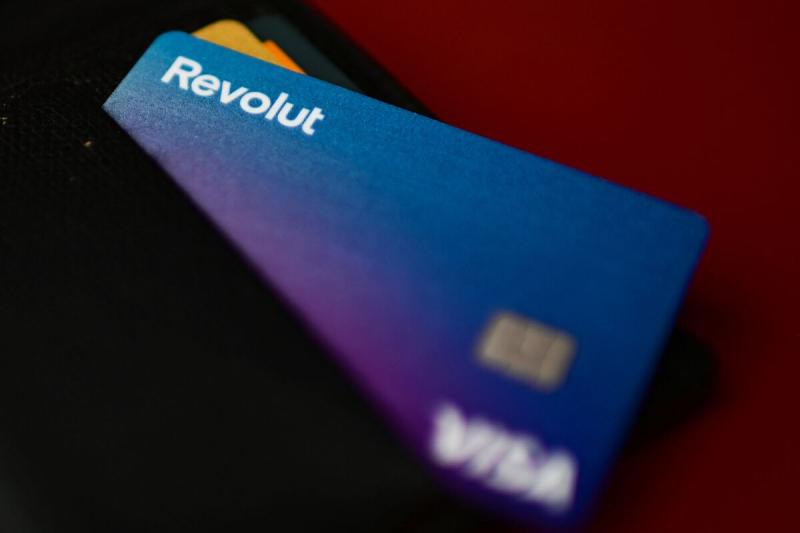Revolut Set to Disrupt UAE Digital Banking
Revolut gains UAE Central Bank approval, paving the way for multi-currency wallets, digital payments, and future crypto services under a dual licensing framework.


In a move that signals the accelerating collision of finance, technology, and regulation in the Gulf, Revolut has secured in-principle approval from the Central Bank of the United Arab Emirates to offer digital banking and payment services in the Emirates. This approval marks a turning point, not only for the London-based fintech unicorn but for the future of banking in a region that has long been defined by the local players.
Revolut, which has rapidly become one of the most formidable names in global neobanking, is now poised to enter the UAE market through a two-tiered licensing structure. The first is the “Stored Value Facilities” license, authorizing the firm to hold customer funds via digital wallets, prepaid accounts, and other non-traditional instruments. The second is the “Retail Payment Services” license, which enables Revolut to directly facilitate person-to-person transfers, merchant settlements, and digital payment rails. Together, these licenses form the regulatory spine for a comprehensive fintech ecosystem, one designed to bypass legacy banking structures and put programmable money in the hands of consumers.
From a technological standpoint, Revolut’s imminent launch is not just a matter of offering slick user interfaces or 24/7 app support. The firm’s platform integrates multi-currency wallets, algorithmic foreign exchange pricing, real-time remittance rails, and tokenized asset exposure. In other jurisdictions, Revolut users can buy fractional shares, convert fiat into crypto, and even deploy budget automation tools powered by predictive machine learning. While the UAE iteration of the app may initially launch with more limited functionality, we expect rapid convergence with Revolut’s global infrastructure particularly as Gulf regulators continue modernizing their virtual asset frameworks under VARA, DIFC’s DFSA, ADGM’a FSRA, and UAE’s Central Bank’s mandates.
Legally, the firm's structure in the UAE is emblematic of a broader shift in regulatory posture. By granting Revolut this dual in-principle clearance, the Central Bank has effectively endorsed a new category of financial actor: the embedded, mobile-native, API-driven financial institution. These are not mere “money apps.” They are cloud-native banking frameworks with encrypted KYC/AML pipelines, built-in compliance modules, and cross-border licensing ambitions. Their agility, powered by modular architecture and aggressive regulatory framework, stands in contrast to the “monolithic” style of traditional institutions. In short, Revolut is not coming to join the banking establishment, it is coming to compete with it on entirely new terms.
Crypto-native users, in particular, will find this development instructive. As tokenization becomes central to financial infrastructure from CBDCs (soon to be launched by the UAE’s Central Bank) to tokenized bonds and NFTs with smart contract royalties, companies like Revolut sit at the critical juncture between TradFi and DeFi. In Europe, the company has already offered direct crypto trading, wallet integrations, and staking functions, with custodianship via partners like Fireblocks and Ledger Enterprise. If and when these features are ported into the UAE sandbox, they could radically alter the landscape for crypto onramps and offramps in a region already teeming with digital asset adoption.
Timing, too, is on Revolut’s side as this year, the UAE has rolled out “Aani,” the Central Bank’s instant payments platform that has already integrated more than 1.5 million users and over 50 financial institutions. Meanwhile, new regulatory sandboxes, startup grants, and virtual asset frameworks are reconfiguring the Gulf as a global fintech magnet. Against this backdrop, Revolut’s arrival is less a disruption and more a revelation, a recalibration of what residents, expats, and even regulators should expect from a financial service provider.
If Revolut’s track record in Europe is any indication, the UAE should brace for a profound redefinition of digital finance. From the unbanked worker in Al Quoz to the crypto investor and the DIFC banker looking for a smart cross-border payment tool, Revolut's arrival may well be the moment fintech in the region crosses its Rubicon.
And this time, it won’t be the banks setting the rules. We said it first!
Contact us for a free consultation
Get expert advice and tailored solutions from industry leaders.



